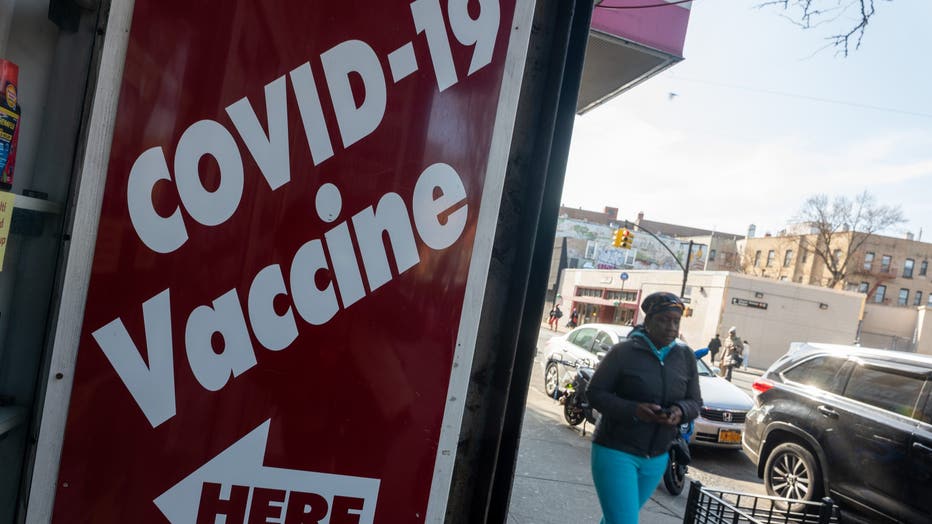FDA will limit approval for seasonal COVID vaccines: What to know

RFK Jr. and Senator Hassan get in heated exchange
At a Senate hearing over Secretary Robert Kennedy Jr.'s leadership of the HHS, Senator Maggie Hassan from New Hampshire got into a heated back and forth over the expertise of a health advocate RFK has worked with.
The U.S. Food and Drug Administration will no longer approve annual COVID-19 vaccines for healthy younger adults and children unless drugmakers do lengthy new studies.
It's a stark break from the previous federal policy recommending an annual COVID shot for all Americans six months and older. It also raises questions about whether some people who want a vaccine this fall will be able to get one.
COVID-19 vaccine changes
What we know:
The Trump administration will limit approval for seasonal COVID-19 shots to seniors and others at high risk pending more data on everyone else. They’ll continue to use a streamlined approach for adults 65 and older and younger adults with at least one high-risk health issue.

A pharmacy advertises the COVID-19 vaccine as the nation marks the fifth anniversary of the Covid-19 pandemic on March 13, 2025 in New York City. (Photo by Spencer Platt/Getty Images)
But the FDA framework, published Tuesday in the New England Journal of Medicine, urges companies to conduct large, lengthy studies before tweaked vaccines can be approved for healthier people. The FDA's top vaccine official said more than 100 million Americans still should qualify for what he termed a booster under the new guidance.
What we don't know:
It's still unclear what the upcoming changes mean for people who may still want a fall COVID-19 shot but don't clearly fit into one of the categories.
What they're saying:
Dr. Vinay Prasad described the new approach as a "reasonable compromise" that will allow vaccinations in high-risk groups to continue while generating new data about whether they still benefit healthier people.
RELATED: From fluoride to vaccines to drug ads: Takeaways from RFK Jr.’s testimony to Congress
"For many Americans we simply do not know the answer as to whether or not they should be getting the seventh or eighth or ninth or tenth COVID-19 booster," said Prasad, who joined the FDA earlier this month. He previously spent more than a decade in academia, frequently criticizing the FDA's handling of drug and vaccine approvals.
The other side:
The nation's leading pediatrics group said FDA's approach will limit options for parents and their children.
"Is the pharmacist going to determine if you're in a high-risk group?" asked Dr. Paul Offit, a vaccine expert at Children's Hospital of Philadelphia. "The only thing that can come of this will make vaccines less insurable and less available."
RELATED: RFK Jr.'s next target: Ingestible fluoride products for kids
"If the vaccine were no longer available or covered by insurance, it will take the choice away from families who wish to protect their children from COVID-19, especially among families already facing barriers to care," said Dr. Sean O'Leary of the American Academy of Pediatrics.
Why is the FDA changing COVID vaccine approvals?
The backstory:
For years, federal health officials have told most Americans to expect annual updates to COVID-19 vaccines, similar to the annual flu shot. Just like with flu vaccines, until now the FDA has approved updated COVID shots so long as they show as much immune protection as the previous year's version.
But FDA's new guidance appears to be the end of that approach.
Dig deeper:
The new FDA approach is the culmination of a series of recent steps under Health Secretary Robert F. Kennedy Jr. scrutinizing the use of COVID shots and raising questions about the broader availability of vaccines.
Last week the FDA granted full approval of Novavax's COVID-19 vaccine but with major restrictions on who can get it — and Tuesday's guidance mirrors those restrictions. The approval came after Trump appointees overruled FDA scientists' earlier plans to approve the shot without restrictions.
Pfizer and Moderna, makers of the most commonly used COVID shots, each said they would continue to work with the agency.
How many people died from COVID-19 last year?
By the numbers:
More than 47,000 Americans died from COVID-related causes last year, according to the U.S. Centers for Disease Control and Prevention. The virus was the underlying cause for two-thirds of those and it was a contributing factor for the rest. Among them were 231 children whose deaths were deemed COVID-related, 134 of them where the virus was the direct cause -- numbers similar to yearly pediatric deaths from the flu.
The Source: This report includes information from The Associated Press.

